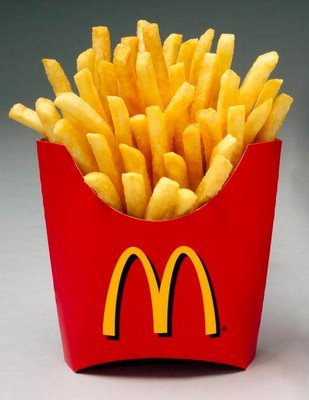Next time you order a Big Mac Meal from a Victorian McDonald’s outlet, you can assuage some of the guilt you might feel afterwards with the knowledge that the oil used to cook your fries will be going to a good green cause, with McDonald’s Australia revealing plans to recycle its used vegetable oil into biodiesel to run its Victorian truck fleet.
The fast food giant announced today that used cooking oil from its Victorian restaurants will be collected and taken to a biodiesel processing facility in Dandenong – operated by its partner in the venture, Neutral Fuels, and officially opened Wednesday by the Victorian minister for innovation, Louise Asher – and then used to fuel McDonald’s Victorian transport fleet, which is owned and operated by distribution partner Martin Brower.
The process – described as a closed-loop system, with the used oil being collected by the same vehicles that deliver the vegetable oil fresh to the restaurants, and then pumped back into the delivery fleet once converted to biodiesel – has been successfully tested by Neutral Fuels in Dubai, where the local McDonald’s logistics fleet has driven more than one million kms the cooking oil-converted biodiesel – an effort that won the two companies the Dubai Award for Sustainable Transport in the Environmental Protection Category.
The conversion process involves twice filtering the cooking oil before heating it and mixing it with two chemicals, methanol and potassium methylate. It is then cleaned twice and filtered for a final time before being pumped into the trucks.
Half of McDonald’s 225 Victorian outlets are now using the system, and the majority will join the effort by early next year. Initially, about 700,000 litres of oil a year will be converted, with any excess fuel to be sold to other suppliers.
Studies, such as the US EPA’s Renewable Fuel Standards Program Regulatory Impact Analysis, released in February 2010, have found that biodiesel from soy oil results, on average, in a 57 per cent reduction in greenhouse gases compared to petroleum diesel, while biodiesel from waste grease results in an 86 per cent reduction.
“For more than a year now McDonald’s UAE has been proving that biodiesel is a long-term sustainable alternative for the environment,” said Neutral Fuels chairman KarlFeilder. “Equally important, they’re proving its commercial viability. In a traditionally volatile market, there is a considerable economic advantage in predictable diesel pricing.”










